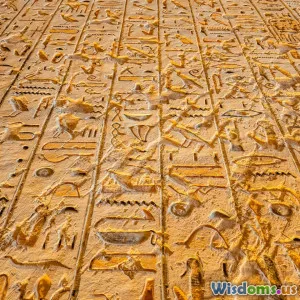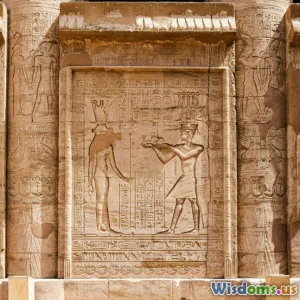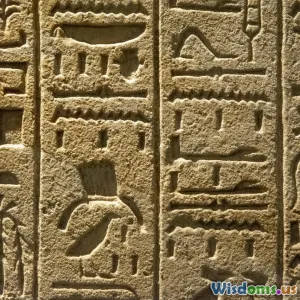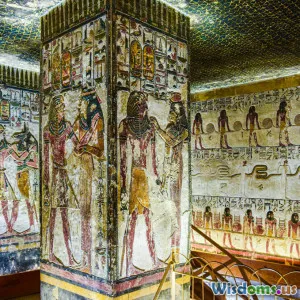
L'écriture et la civilisation : un lien ancien
(Writing and Civilization: An Ancient Link)
5 minute lu Explorez la profonde connexion entre l'écriture et le développement des civilisations anciennes. (0 Avis)
Writing and Civilization: An Ancient Link
The invention of writing is one of the most significant milestones in human history, serving as a cornerstone for the development of civilizations. From the cuneiform of Mesopotamia to the hieroglyphs of Egypt, writing systems have not only recorded history but have also facilitated trade, governance, and cultural exchange. This article explores the intricate relationship between writing and the rise of ancient civilizations, shedding light on how these early scripts shaped societies and human interactions.
The Birth of Writing Systems
Writing emerged independently in several regions of the world, with the earliest known systems appearing around 3200 BCE in Mesopotamia. Cuneiform, developed by the Sumerians, was initially used for record-keeping and administrative purposes. Similarly, ancient Egyptians developed hieroglyphs that combined logographic and alphabetic elements, used to document religious texts and monumental inscriptions.
Interestingly, these writing systems were not just tools of communication; they acted as catalysts for social transformation. By enabling the documentation of laws, trade agreements, and historical events, writing allowed civilizations to establish a sense of permanence and continuity.
Writing’s Role in Governance and Law
As civilizations grew more complex, the need for organized governance became evident. Writing played a crucial role in the formulation and dissemination of laws. The Code of Hammurabi, one of the earliest written legal codes, illustrates how writing helped codify societal norms and establish justice in ancient Babylon. Such written laws provided a framework for governance, allowing societies to function in a more organized manner.
Furthermore, the ability to record transactions and agreements facilitated trade and economic growth. Merchants could document sales, debts, and contracts, enabling more extensive trade networks and economic stability.
Cultural Exchange and Preservation
Writing also served as a vehicle for cultural exchange. With the rise of empires, such as the Persian and Roman Empires, the spread of writing systems allowed for the sharing of ideas, literature, and philosophies across diverse populations. For instance, the Greek alphabet, evolving from Phoenician script, became a foundation for many modern languages and was instrumental in the spread of Greek culture and knowledge.
In addition to facilitating cultural exchange, writing has played a pivotal role in preserving knowledge. Ancient texts, such as those found in the Library of Alexandria, provided insights into the scientific, philosophical, and literary achievements of their time. These writings not only preserved the past but also laid the groundwork for future advancements.
The Impact of Writing on Identity and Society
Writing has also influenced individual and collective identities within civilizations. Scripts became symbols of cultural pride and unity. For example, in ancient China, characters were not just a means of communication but also represented a philosophical and aesthetic worldview. The preservation of language and script helped form a sense of belonging among the people.
Moreover, writing empowered certain classes within societies, often creating a divide between literate and illiterate populations. Scribes and scholars held significant power, as literacy was often limited to the elite, influencing social hierarchies and access to knowledge.
Conclusion
The link between writing and civilization is profound and multifaceted. Writing has served not only as a tool for communication but also as a catalyst for governance, economic development, cultural exchange, and identity formation. The ancient scripts that emerged from various civilizations laid the foundation for the complex societies we know today. As we continue to explore the archaeological mysteries surrounding these ancient writing systems, we gain valuable insights into the human experience and the evolution of civilization itself. Writing, in its many forms, remains a testament to our shared history and a key to understanding our future.
Évaluer la publication
Avis des utilisateurs
Publications populaires




















